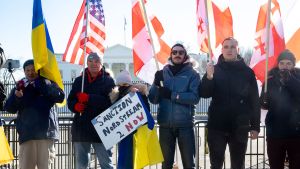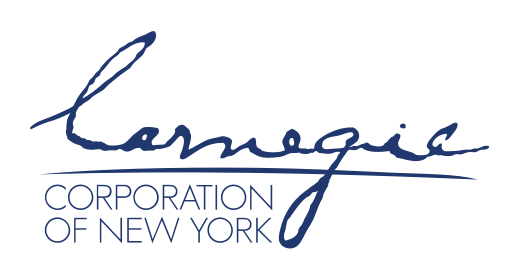Survey results show the public remains supportive of US assistance to Ukraine—even if it means paying higher gas and food prices at home.
The United States has committed more than $9 billion of military assistance to the Ukrainian war effort since the February 24 Russian invasion, an unprecedented amount compared to other US military aid campaigns in the last 30 years. Despite the high price tag associated with this assistance, a just-completed Chicago Council Survey shows that the American public remains supportive of US economic assistance and military transfers to Ukraine. In fact, a majority are willing to continue to support the country “as long as it takes.” At the same time, Americans are just as reluctant now as they were in March to send US soldiers to the war zone.
Key Findings on American Support for Ukraine
- Majorities continue to support US economic and diplomatic sanctions against Russia (80%), accepting Ukrainian refugees into the United States (76%), providing additional arms and military supplies to the Ukrainian government (72%), and giving economic assistance to Ukraine (71%).
- Nearly four in 10 support sending US troops to defend Ukraine (38%).
- By a six-to-four ratio, Americans say the United States should support Ukraine for as long as it takes, even if American households will have to pay higher gas and food prices in consequence. However, there are significant partisan differences.
- Nearly two-thirds think the invasion sets a precedent that other countries can launch wars for territorial gain (64%).
- An even larger majority believes the Russian invasion will encourage China to invade Taiwan (76%).




Methodology
This analysis is based on data from the 2022 Chicago Council Survey of the American public on foreign policy, a project of the Lester Crown Center on US Foreign Policy. The 2022 Chicago Council Survey was conducted July 15–August 1, 2022, by Ipsos using its large-scale nationwide online research panel, KnowledgePanel, in both English and Spanish among a weighted national sample of 3,106 adults 18 or older living in all 50 US states and the District of Columbia. The margin of sampling error for the full sample is +/- 1.8 percentage points. The margin of error is higher for partisan subgroups or for partial-sample items.
Partisan identification is based on how respondents answered a standard partisan self-identification question: “Generally speaking, do you think of yourself as a Republican, a Democrat, an Independent, or what?”
The 2022 Chicago Council Survey is made possible by the generous support of the Crown family and the Korea Foundation.
Other data in this report is based on results of a survey conducted March 25–28, 2022, also conducted by Ipsos using the, among a weighted national sample of 1,016 adults, 18 or older, living in all 50 US states and the District of Columbia. The margin of sampling error for the full sample is +/- 3.0 percentage points and is higher for subgroups or partial-sample items. This survey was made possible by the support of the Carnegie Corporation of New York.
Related Content
 Public Opinion
Public Opinion
Why are Ukrainians receiving a warmer welcome from the American public than past refugee groups?
 Public Opinion
Public Opinion
Is the looming economic crisis influencing the public’s preferred response to the war in Ukraine? Recent polling suggests it's possible.
 Public Opinion
Public Opinion
New data reveals that the US public would prefer to respond with to Russia's invasion of Ukraine with sanctions and diplomacy.


